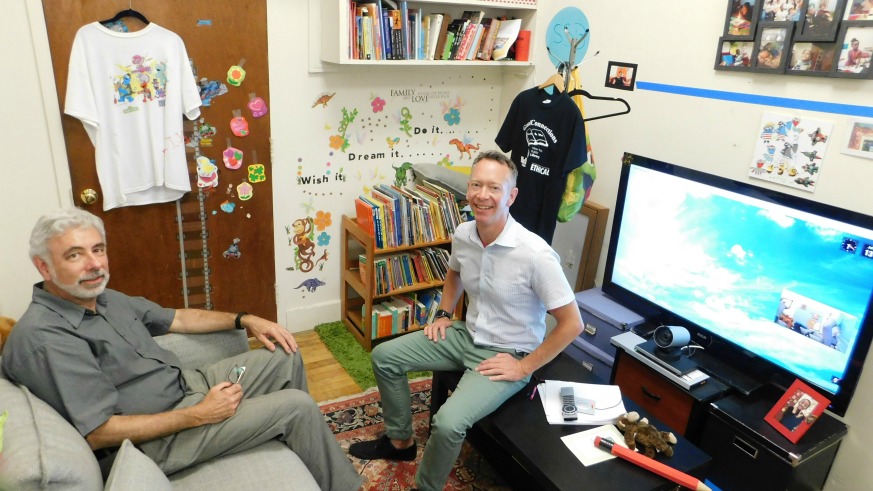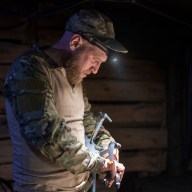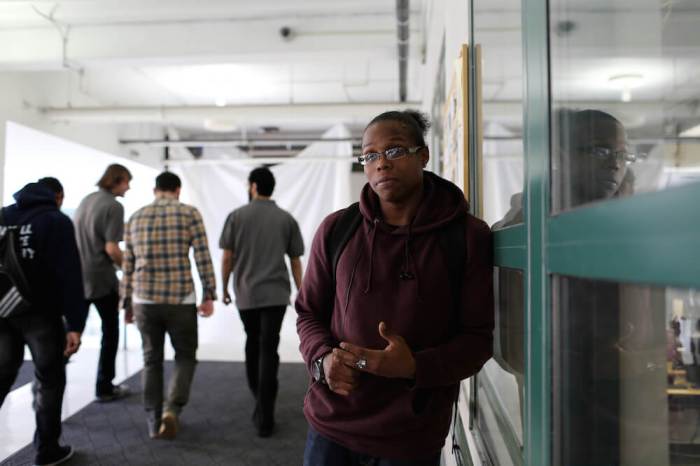The sounds of a pizza party, complete with cheerful children and laughter, spilled out into the hallway. The revelry was akin to an everyday family gathering — except some guests were attending remotely from a local prison.
The gathering was part of the New York Society for Ethical Culture’s Supportive Televisiting Services, a program that keeps children and their incarcerated parents connected. Studies have shown that such visits can reduce behavioral, emotional or other issues a child may have while separated from their parents.
“A big part of this program is to encourage the participation of the incarcerated person in their family and to give them the confidence they’re part of the family, they’re welcome in the family and ease the transition back into the community,” said Richard Koral, leader of Ethical NYC.
And there is a reason it’s called “visiting” and not “visitation.”
“‘Visitation’ has a legalese to it. Visiting is like something you do with your grandmother,” explained Dr. Frank J. Corigliano, the psychologist who runs the program.
The 45-minute visits, which take place at Ethical NYC on the Upper West Side, are “critical to maintaining family connections and giving parents and children the best possible chances of creating and maintaining strong family bonds,” he added.
That is exactly what happened with Darrell, a father who took part in the program with his then-8-year-old daughter for the four months he was incarcerated.
“It was extremely helpful and very important for both of us to be able to see each other more conveniently,” he said. “It helped us keep hope and kept me in a positive frame of mind.”
Additionally, the visits “kept her looking forward to her dad returning,” Darrell said. “You think you’re the only one going through this, but it affects your family, too.”
Ethical NYC’s supportive televisiting service began in 2011 with Albion Correctional Facility for women and soon expanded throughout New York City’s Department of Corrections system. Corigliano also launched library-based televisits and offers training for other organizations that want to develop programs as well.
He also works closely with the DOC to identify and have prep sessions with participating parents, and either he or a social work intern are in the televisiting room at all times, “so it’s always supported,” Corigliano added.
The kid-friendly room, which was redesigned with help from Darrell’s daughter, features a high-definition TV, a comfy sofa, books, artwork and lots of stuffed animals.
During visits, Corligiano uses “family language,” like the aforementioned “visiting” over “visitation,” “supportive” over “supervised” and especially “parent” instead of “inmate.”
“Suddenly you have someone who is an inmate and a number who is defined by what their charge was to a mom or dad who gets to show up for their kid,” he said.
Since inception, the program has kept more than 100 kids connected to their parents with visits ranging from birthday parties to homework sessions. The visits are also beneficial for other family members as well. Such is the case with Nancy, whose daughter and son are both incarcerated and who in turn has custody of two of her five grandchildren. Nancy has participated in Ethical NYC’s supportive televisiting service for the past few months.
“Sometimes I cry when I’m not supposed to, but I can’t wait to see [my kids],” she said.



















